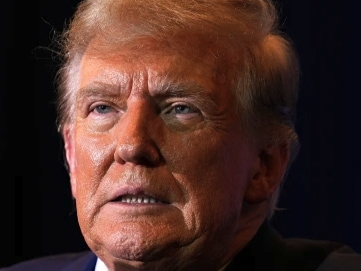Supreme Court allows Trump on Colorado primary ballot amid riot role scrutiny. Legal experts weigh in on implications.

Supreme Court Allows Trump on Colorado Primary Ballot Despite Riot Role: Legal Experts Concerned
In a decision that sparked both celebration and consternation, the US Supreme Court ruled in favor of allowing former President Donald Trump to remain on the Colorado primary ballot, despite his alleged role in the January 6 riot at the US Capitol. Legal scholars and political observers have expressed concerns about the implications of the ruling on accountability and the health of American democracy.
The case centered on Colorado’s attempt to bar Trump from its Republican presidential primary under the 14th Amendment of the US Constitution, specifically citing the amendment’s “insurrection clause.” This clause disqualifies candidates from public office if they have “engaged in insurrection or rebellion” against the US government.
Also Read:- Haiti in Crisis: Gang Violence, Political Turmoil, and the Search for Hope
The Colorado state Supreme Court had previously ruled that Trump’s actions on January 6, 2021, constituted a violation of the insurrection clause, as he was accused of inciting the riot at the Capitol. However, in a unanimous decision, the US Supreme Court overturned Colorado’s efforts, asserting that the state could not remove Trump from its primary ballot.
Legal experts, such as Thomas Keck, a professor of political science at Syracuse University, acknowledge that Colorado’s case faced significant challenges from the outset. Keck notes that while the ruling may not have been surprising, it raises broader questions about the mechanisms in place to safeguard democracy. He expresses concern over the perceived lack of consequences for Trump’s actions, three years after the events of January 6, suggesting that this could signal a troubling trend for the country’s democratic institutions.
Trump and his supporters celebrated the Supreme Court’s decision as a victory, with Trump framing it as a vindication against perceived political persecution. Republican lawmakers echoed this sentiment, decrying what they saw as attempts to interfere with the election process through legal means. Democrats, on the other hand, responded with a mixture of outrage and resignation, with some questioning the optics of removing Trump from the ballot.
Also Read:- Tony Holmes: Empowering Communities at Carver Bank
Quentin Fulks, a manager for President Joe Biden’s reelection campaign, expressed indifference to the ruling, indicating that defeating Trump at the ballot box had always been their primary focus. However, the decision has sparked broader discussions about the implications of Trump’s actions and the role of the judiciary in upholding accountability.
The Colorado case hinged on allegations that Trump played a role in inciting the violence that occurred at the US Capitol following his defeat in the 2020 presidential election. Despite facing accusations of spreading false claims about election fraud, the Supreme Court justices unanimously agreed that states could only disqualify candidates for state-level offices, not federal positions like the presidency.
Also Read:- What is Super Tuesday and What is its Importance? All You Need to Know
However, the unanimity among the justices ended there. In a majority opinion, five conservative justices argued that only Congress had the authority to disqualify individuals from running for federal office on the grounds of insurrection. This emphasis on congressional action has raised concerns among critics about the potential limitations on the judiciary’s ability to interpret and enforce the 14th Amendment.
As legal scholars and political observers grapple with the implications of the Supreme Court’s decision, questions remain about the broader implications for accountability, democracy, and the rule of law in the United States. The ruling underscores the ongoing tensions surrounding Trump’s legacy and the challenges of reconciling political accountability with constitutional principles.
